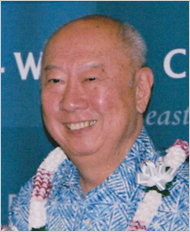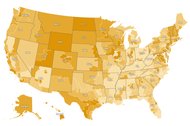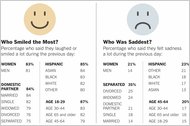For the last three years, Gallup has called 1,000 randomly selected American adults each day and asked them about their emotional status, work satisfaction, eating habits, illnesses, stress levels and other indicators of their quality of life.
Surveys
Discovered: The Happiest Man in America
By CATHERINE RAMPELL

Alvin Wong
Multimedia
It’s part of an effort to measure the components of “the good life.” The responses are plugged into a formula, called the Gallup-Healthways Well-Being Index, and then sorted by geographic area and other demographic criteria. The accompanying maps show where well-being is highest and lowest around the country.
The New York Times asked Gallup to come up with a statistical composite for the happiest person in America, based on the characteristics that most closely correlated with happiness in 2010. Men, for example, tend to be happier than women, older people are happier than middle-aged people, and so on.
Gallup’s answer: he’s a tall, Asian-American, observant Jew who is at least 65 and married, has children, lives in Hawaii, runs his own business and has a household income of more than $120,000 a year. A few phone calls later and ...
Meet Alvin Wong. He is a 5-foot-10, 69-year-old, Chinese-American, Kosher-observing Jew, who’s married with children and lives in Honolulu. He runs his own health care management business and earns more than $120,000 a year.
Reached by phone at his home on Friday (and referred to The Times by a local synagogue), Mr. Wong said that he was indeed a very happy person. He said that perhaps he manages to be the happiest man in America because “my life philosophy is, if you can’t laugh at yourself, life is going to be pretty terrible for you.”
He continued: “This is a practical joke, right?” Copyright 2011 The New York Times. Reprinted from The New York Times, Week in Review, of Sunday, March 6, 2011.

